Table of Contents
● Introduction
● Market overview: Growth and trends in musical instruments
● Key considerations when selecting musical instruments and accessories
● Top musical instruments and accessories: Features, brands, and models
● Conclusion
Introduction
In today’s changing music industry landscape, it’s vital to make informed decisions when picking the perfect musical instruments and gear. The choices are abundant, and a wide array of classic and digital instruments are available. Selecting the right products can truly impact a musician’s journey towards success. Striking a balance between quality, functionality, and cost-effectiveness holds immense significance for musicians of all expertise levels today.
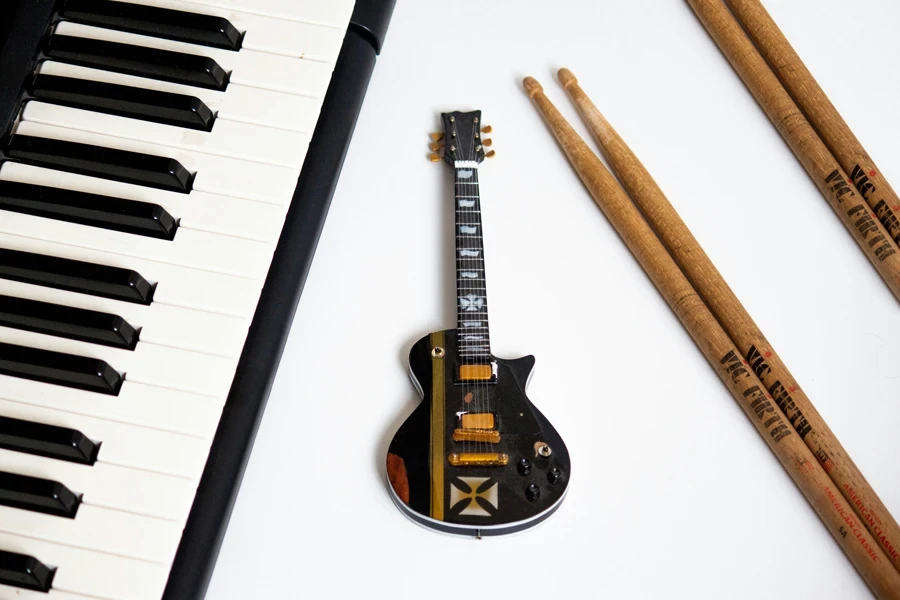
Market overview: Growth and trends in musical instruments
The worldwide market for musical instruments is projected to increase from $16.38 billion in 2023 to almost $29 billion by 2031 at a compound annual growth rate of 7.4%. This rise is fueled by the growing demand for shows and concerts and the growing fascination with digital instruments. Technological advancements, like the creation of customizable instruments and enhancements in digital pianos, have made music more accessible. Furthermore, the increasing popularity of online music learning is broadening the customer base, encompassing students and hobbyists. Based on a report from Fortune Business Insights, the market for string instruments such as guitars continues to thrive because they are still popular among young aspiring musicians.
In terms of trends on a global scale, Asia Pacific is in the lead, with more than 41% of total revenue generated thanks to a growing fascination with Western music and the improved spending power in nations like China and India. North America and Europe also play big roles, propelled by their deep cultural ties to music in the United States and Europe. According to findings by Grand View Research, premium digital instruments are highly sought after in these regions, which is boosting market growth further.
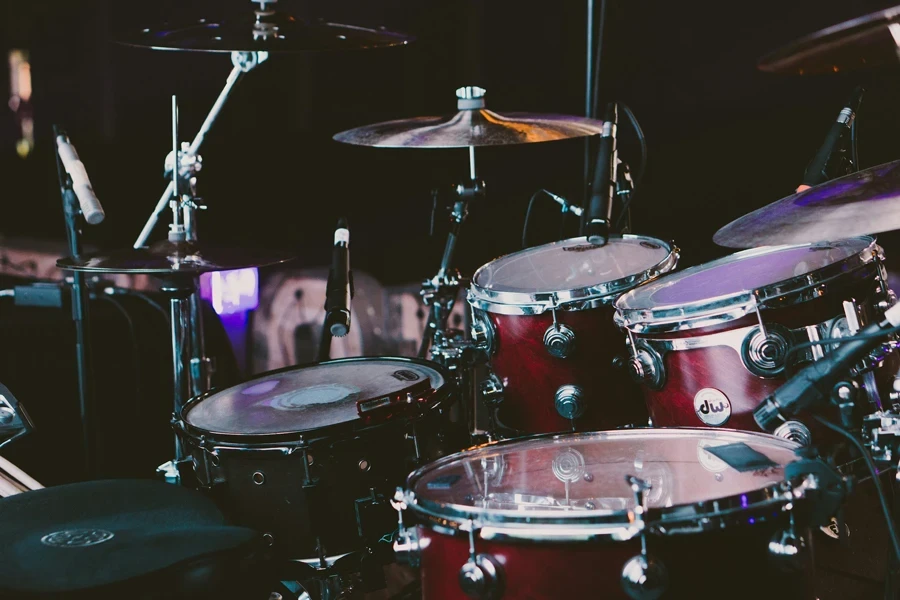
Key considerations when selecting musical instruments and accessories
Instrument type and skill level
Selecting the ideal musical instrument greatly depends on the player’s expertise since beginners, intermediates, and experts have distinct requirements. For novices, basic instruments like the ukulele, acoustic guitar, or piano are perfect due to their accessibility and simplicity of mastering. These instruments help develop foundational skills like rhythm and melody recognition. For intermediate players, instruments such as electric guitars or digital keyboards that offer more features and customization options become more appropriate. Professionals often require high-end instruments with advanced features for live performances or studio recordings. According to Merit Music, instruments that are suited to the player’s skill level help maintain motivation and ensure smoother progression.
Quality vs. budget
Finding the balance between affordability and quality is essential for buyers’ decision-making. People may be inclined to choose less expensive instruments; however, cheap options might sacrifice sound quality and durability. Beginners are advised to consider mid-range instruments as they offer satisfactory quality at a reasonable price. On the other hand, professional musicians tend to favor top-tier instruments from renowned brands such as Yamaha Fender and Steinway, which deliver exceptional sound quality and lasting performance. According to a report by Future Market Insights, experts predict an increase in the need for end musical instruments as skilled musicians seek out top-notch products that meet their performance requirements.
Digital vs. traditional instruments
In today’s age of music-making, options abound for musicians grappling with the choice between digital and conventional musical instruments. Digital instruments like MIDI controllers and synthesizers provide a range of sound manipulation possibilities and are widely embraced by music producers seeking versatility. On the other hand, traditional instruments such as acoustic guitars or grand pianos are revered for their timeless, authentic sound quality. As per AIMM findings, younger musicians and producers increasingly lean towards digital instruments due to their cost-effectiveness and seamless integration with software solutions. Conversely, traditional instruments maintain their significance in acoustic performances.
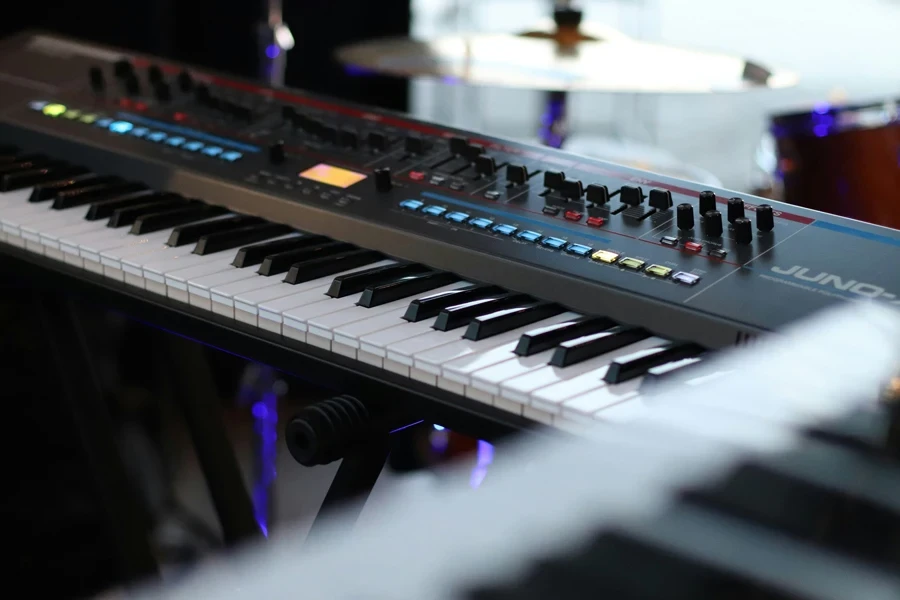
Brand reputation and warranty
Investing in a known brand guarantees the excellence of the musical instrument and provides dependable post-purchase assistance and care services afterwards. Renowned names like Yamaha and Steinway have established themselves as top options by delivering durable, top-notch instruments and extensive warranty coverage. In addition, these brands also excel in customer service and maintaining high resale value, ensuring musicians receive ongoing support for their musical journey. As reported by Future Market Insights, musicians are showing a growing preference for brands that provide reliable warranties. This trend is especially crucial for musicians who depend on their instruments for reliable performance.
Top musical instruments and accessories: Features, brands, and models
Best instruments for beginners
Newbies usually search for tools that are easy to learn and use smoothly while being budget-friendly and long-lasting. Many prefer guitars such as the Yamaha FG800 for their nice feel when playing and good build quality at an affordable cost. The Yamaha FG800 offers sound quality and comfort, which is great for those starting. In a vein to this guitar model are digital keyboards like the Casio CT S300, which are quite popular among beginners because they come with built-in lessons and are light in weight, making them easy to carry around. Plus, they can easily connect to learning apps through USB. The Cremonal SV. 175 Violins are great for beginners as they provide build quality and produce beautiful tones at an affordable price. Merit Music states that these violins help new learners concentrate on mastering skills without the intricacies of premium models, making the learning process much easier and more enjoyable.
Young students are often advised to start with instruments such as the Kala KA 15S Soprano Ukulele to ease into playing stringed instruments because of their compact size and uncomplicated chord patterns. Merit Music suggests that beginning with a ukulele can help build finger strength and agility before progressing to instruments like the guitar or violin.
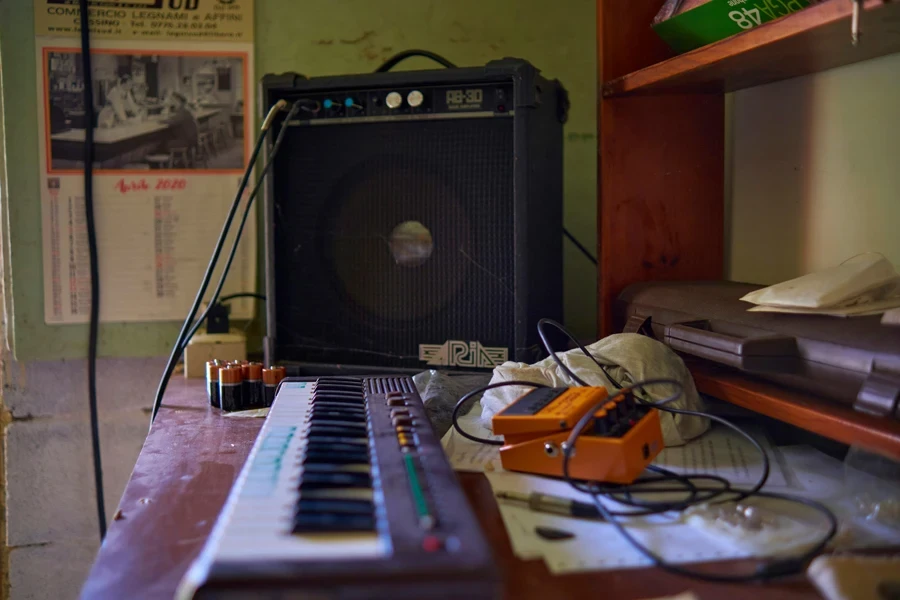
Professional-grade instruments
Professionals emphasize the performance and quality of musical instruments. Top instruments like the Steinway Model D grand piano, are known for their superior craftsmanship and rich tonal characteristics favored by concert pianists globally. In the realm of electric guitars, the Gibson Les Paul Standard stands out for its versatility, blending classic aesthetics with modern attributes catering to a wide range of music genres from rock to jazz. Future Market Insights suggests that seasoned musicians rely heavily upon high-quality equipment to achieve sound quality and reliability for both live shows and studio sessions.
Electronic music producers and DJs rely heavily on gear like the Pioneer DDH 1000 DJ controller and the Ableton Push 2 MIDI controller for their craft. The Pioneer DDH 1000 is renowned for its jog wheels and top-notch features that seamlessly integrate with software for optimal performance. On the other hand, the Ableton Push 2 offers producers a wide range of options to manipulate sounds effectively, making it a crucial asset for live shows and music production endeavors. Professionals prefer these models from AIMMT for their accuracy and seamless integration with production software.
Must-have accessories
Musicians and producers find accessories to be essential alongside their instruments to enhance their quality effectively. Studio microphones such as the renowned Shure SM7B are indispensable for recording vocals and podcasts due to their exceptional ability to accurately capture crisp and distortion-free sound. High-quality headphones like the Audio-Technica ATH M50X are vital for precise sound reproduction in music tracks’ mixing and mastering process. Professional musicians and producers depend on these tools to refine their sound and maintain top-notch production standards based on AIMMR findings.
When recording music in a studio setting of live performances, having an audio interface like the Focusrite Scarlett 2i2 is essential for musicians. This tool helps convert analog sound into digital form to connect instruments with recording software easily. MIDI controllers such as the Akai MPK Mini are crucial for producers seeking hands-on control over their audio workstations. According to Merit Musics’ description, these tools are essential for enhancing recordings and are valuable assets for beginners and experienced professionals aiming to perfect their craft.
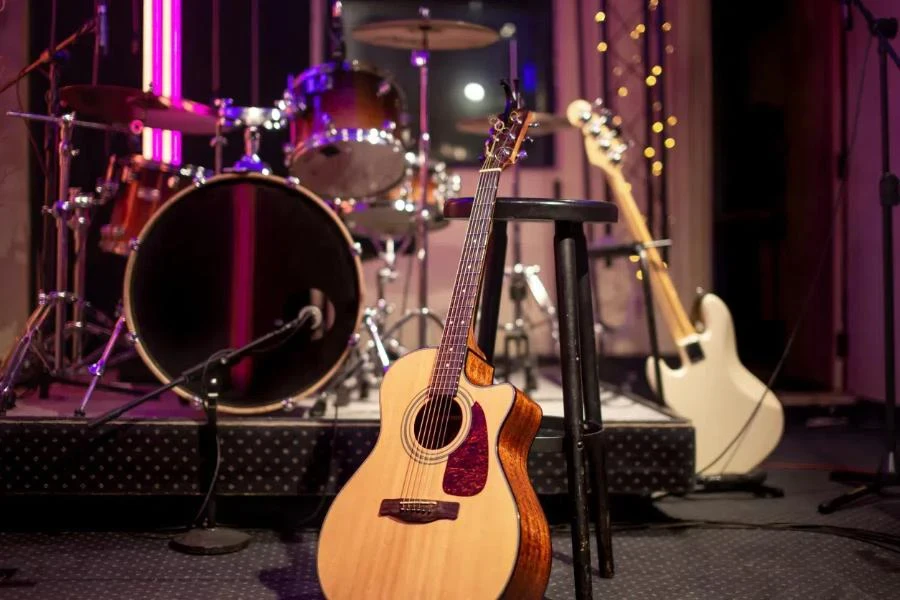
Conclusion
Picking out the perfect musical instruments and gear is essential for newcomers and experts alike to elevate their musical experience. Being aware of market trends while finding a balance between personal preferences and the quality of products enables musicians to make well-thought-out decisions. Instruments must match the musician’s aspirations and proficiency level, whether emphasizing affordability or opting for high-quality equipment. Moreover, accessories such as studio microphones and MIDI controllers can further enhance performance and production capabilities. Ultimately, picking out the appropriate equipment leads to a fusion of imagination, skill, and audio excellence, which is crucial for advancement in the modern music scene.




